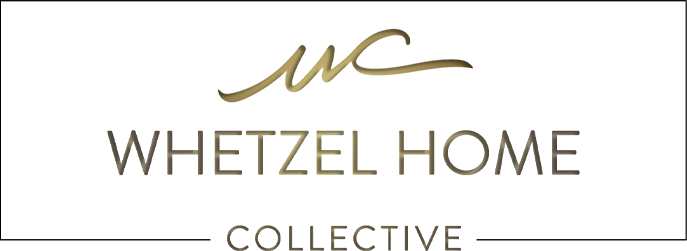Purchasing property is one of life’s most impactful decisions. Whether you’re a first-time buyer or expanding your portfolio, preparation ensures smarter choices. This guide focuses on critical considerations to clarify your journey and minimize risks.
Every real estate transaction demands careful evaluation. Market trends, property conditions, and financial planning all play vital roles. Partnering with a trusted agent like Whetzel Homes Collective simplifies navigating these complexities. Their team in St. George, Utah, offers tailored advice to align with your goals.
Knowledge transforms uncertainty into confidence. Verified information helps avoid costly oversights, from inspection results to neighborhood dynamics. By prioritizing clarity, you’ll make decisions rooted in expertise—not guesswork.
Key Takeaways
- Preparation reduces stress and financial risks during property transactions.
- Local expertise ensures awareness of market-specific factors.
- Asking detailed questions uncovers hidden costs or repair needs.
- Working with experienced professionals streamlines the process.
- Long-term planning protects your investment’s value over time.
For personalized guidance in St. George, contact Whetzel Homes Collective at (435) 334-1544. Their agents combine decades of experience with a commitment to transparent, client-focused service.
Understanding Your Homebuying Goals
Crafting a vision for your ideal living space starts with self-reflection. Aligning priorities with budget and lifestyle prevents rushed decisions, especially in competitive markets like St. George. Local trends show buyers prioritizing flexible layouts and outdoor access—factors shaping long-term satisfaction.
Establishing Your Priorities
List non-negotiable features early. A growing family might need extra bedrooms, while remote workers could prioritize office space. Pet owners often seek fenced yards or proximity to parks. These choices directly influence which properties meet your criteria.
Budgeting for Future Investments
Stretch your dollars wisely by planning beyond the purchase price. Factor in potential renovations, HOA fees, or utility costs specific to Utah’s climate. Whetzel Homes Collective agents analyze these variables, helping clients avoid financial strain. Their insights into St. George’s neighborhoods ensure your budget aligns with realistic expectations.
Consulting professionals early saves months of searching. A 15-minute call with an agent clarifies timelines and prevents overlooked expenses. This proactive step turns abstract goals into actionable plans.
Pre-House Hunting: Key Considerations
Before stepping into open houses, laying financial groundwork sets the stage for success. In dynamic markets like St. George, Utah, where demand often outpaces supply, preparation separates serious buyers from casual lookers.
Securing Mortgage Pre-Approval
Obtaining a pre-approval letter should top every buyer’s checklist. This document verifies your borrowing capacity, showing sellers you’re financially qualified. Lenders assess credit scores and income to determine loan limits—a process taking 1-3 days.
Recent rate dips have intensified competition. Buyers with pre-approvals act faster when rates fall, securing properties before others arrange financing. Local trends show listings often receive multiple offers within 48 hours.
Pre-approval isn’t just about budget clarity. It locks rate estimates for 60-90 days, shielding against sudden increases. This leverage helps negotiate better terms if credit profiles improve during searches.
Partnering with a knowledgeable agent early maximizes these advantages. They connect clients with trusted lenders and explain how property types influence financing options. This collaboration prevents wasted time on homes outside financial reach.
Essential Homebuying Preparation Questions
Strategic preparation hinges on addressing critical factors upfront. Aligning your priorities with practical realities ensures every purchase decision supports both immediate needs and future goals. This phase separates reactive choices from intentional investments.
Defining Your Must-Have Features
Start by distinguishing essentials from preferences. A family needing three bedrooms shouldn’t compromise for a two-bedroom fixer-upper. Remote workers might prioritize dedicated office space over extra bathrooms. Documenting these non-negotiables streamlines searches and prevents emotional oversights.
| Personal Priorities | Financial Goals |
|---|---|
| Square footage | 5-year appreciation potential |
| School district access | Tax incentives |
| Energy-efficient systems | Rental income feasibility |
Clarifying Investment Objectives
Balance lifestyle desires with long-term value. A condo near St. George’s downtown may offer rental income but lack space for expansion. Conversely, suburban properties often appreciate steadily but require higher maintenance. Discussing these trade-offs with your agent reveals hidden opportunities.
Transparent communication about condition concerns avoids post-purchase surprises. For example, asking about roof age or HVAC updates during showings can flag costly issues. Whetzel Homes Collective agents use localized data to highlight risks and opportunities tailored to your criteria.
By framing the right questions early, you create a roadmap that balances comfort with financial wisdom. This approach turns complex decisions into manageable steps, ensuring your investment grows alongside your life.
what questions to ask when buying a house
Navigating real estate transactions requires asking strategic questions that uncover vital details. These inquiries protect your interests while clarifying terms, timelines, and responsibilities. A systematic approach ensures nothing slips through the cracks.

Focus on three core areas: property history, included items, and seller motivations. For example, ask how long the house has been listed and whether price adjustments occurred. Request documentation of recent repairs or upgrades—this information reveals hidden maintenance costs.
| Key Focus Areas | Critical Questions |
|---|---|
| Property History | Has the roof/HVAC been replaced in the last decade? |
| Included Items | Are appliances, window treatments, or landscaping features part of the sale? |
| Seller Motivations | What timeline does the seller prefer for closing? |
| Negotiation Leverage | Are there competing offers or flexibility on contingencies? |
Transparent communication with the seller and agent builds trust. Request written disclosures about past damages or neighborhood disputes. In St. George’s market, 63% of homes sold in 2023 had disclosures addressing flood zone designations—a crucial factor for insurance costs.
Your agent plays a pivotal role in framing these discussions. They’ll identify which queries yield actionable information, from utility averages to renovation permits. This collaboration turns abstract concerns into clear next steps, setting the stage for confident negotiations.
Evaluating Property Condition and Maintenance
A property’s physical state directly impacts its value and livability. Thorough assessments prevent unexpected costs and ensure safety. Nearly 40% of buyers discover hidden problems after moving in—issues a professional inspection could have identified early.
Inspecting Structural Integrity
Focus on three critical areas: foundation, walls, and roof. Uneven floors or diagonal wall cracks often signal foundation shifts. Water stains on ceilings may indicate leaks requiring immediate repairs. In St. George’s arid climate, sun-damaged shingles reduce a house‘s weather resistance.
| Common Issues | Inspection Focus |
|---|---|
| Foundation cracks | Width exceeding 1/4 inch |
| Roof wear | Missing granules or curled shingles |
| Plumbing leaks | Water pressure consistency |
Maintenance History Insight
Request records of past repairs and upgrades. Regular HVAC servicing suggests responsible ownership, while repeated pipe fixes might indicate systemic problems. Recent data shows homes with documented maintenance sell 17% faster in competitive markets.
Partnering with a skilled agent enhances this process. They interpret inspection reports and negotiate credits for unresolved condition issues. Their expertise turns technical findings into actionable next steps.
Navigating Neighborhood and School Assessments
A community’s character shapes daily life as much as your home’s walls. Evaluating surroundings ensures your investment aligns with lifestyle needs and long-term goals. Local data shows properties near top-rated schools retain value 12% better during market dips.

Assessing Local Amenities
Walkability and access define a neighborhood’s appeal. Visit parks, grocery stores, and healthcare facilities during different times to gauge noise levels and convenience. A 2023 study found homes near community centers sell 9% faster in St. George.
| Neighborhood Factor | Value Impact |
|---|---|
| Walkability score | +5-8% resale premium |
| Proximity to trails | Higher buyer demand |
| HOA fees | Affects monthly budgets |
Reviewing School Ratings
Schools influence both family life and resale potential. Check GreatSchools.org ratings and visit campuses to observe facilities. “Homes in A-rated districts attract 23% more offers in competitive markets,” notes a Utah real estate report.
- Compare test scores and extracurricular programs
- Ask about enrollment boundaries—they can shift
- Factor in commute times for daily routines
Spend weekends exploring the area. Attend local events or chat with residents to sense community dynamics. Your agent can share insights on planned developments affecting noise, traffic, or fees. This groundwork turns abstract data into lived experience.
Interviewing Real Estate Agents Effectively
Choosing the right real estate professional transforms complex transactions into manageable steps. A skilled agent acts as your advocate, negotiator, and local expert—qualities that directly impact your experience and outcomes.

Agent Experience and Local Market Knowledge
Prioritize professionals with proven success in your target area. In St. George, neighborhood dynamics shift dramatically between historic districts and new developments. Ask:
- How many years have you worked specifically in this ZIP code?
- Can you share recent sales data for comparable properties?
- What unique factors affect pricing in this community?
| Experience Level | Buyer Advantage |
|---|---|
| 5+ local years | Access to off-market listings |
| 10+ closed deals | Strong negotiation benchmarks |
| Specialized certifications | Enhanced contract insights |
Communication and Transparency Checks
Clear dialogue prevents misunderstandings during fast-paced transactions. Establish preferred contact methods and response timelines upfront. A 2023 National Association of Realtors® study found 68% of buyers value daily updates during critical phases.
“Agents who explain both strengths and potential drawbacks of properties build lasting trust.”
Key communication checks include:
- Requesting sample progress reports from past clients
- Clarifying how they handle multiple offer scenarios
- Discussing their approach to repair negotiations
Interview three estate agents minimum. Compare their strategies for overcoming common hurdles like appraisal gaps or inspection surprises. This due diligence ensures your chosen partner aligns with both your practical needs and communication style.
Understanding Legal and Zoning Issues
Clear legal boundaries and community rules form the foundation of secure homeownership. Overlooking these details can lead to disputes or unexpected limitations on your property use. Proactive verification protects your rights and investment potential.
Reviewing Easements and Legal Disclosures
Always request copies of easement agreements during due diligence. These documents outline third-party access rights for utilities or shared driveways. Ask sellers directly about any ongoing boundary disputes or encroachments not listed in disclosures.
Key documents to analyze:
- Title reports showing ownership history
- Survey maps confirming plot dimensions
- HOA covenants restricting modifications
Zoning and Building Code Compliance
Local zoning rules dictate how you can modify or use your property. A residential lot zoned R-1 might prohibit business operations, while historic districts often limit exterior changes. Verify permitted uses with municipal planning departments before finalizing a sale.
| Zoning Type | Common Restrictions |
|---|---|
| Residential | No commercial signage |
| Agricultural | Minimum acreage requirements |
| Mixed-Use | Height limitations |
Ensure all structures meet current building codes. Unpermitted additions discovered post-sale could require costly demolition. Your agent can help request compliance certificates from local authorities.
Consult real estate attorneys to interpret complex clauses in included sale paperwork. Their expertise identifies red flags like undisclosed liens or inheritance claims that might cloud ownership rights.
Exploring Costs, Fees, and Taxes
Financial clarity separates confident buyers from those facing post-purchase surprises. Beyond the listed price, multiple fees and obligations shape your total investment. Proactive planning prevents budget shortfalls during transactions.
Understanding Property Taxes and Closing Costs
Closing costs typically range from 2-5% of the purchase price. These include loan origination charges, title searches, and appraisal fees. In Utah, transfer taxes add another layer—though sellers often cover this amount.
Recurring expenses impact long-term affordability. Property taxes vary by county, with St. George averaging 0.58% of assessed value annually. HOA fees for community amenities might add $200-$500 monthly. Factor these into your five-year financial projections.
| One-Time Costs | Recurring Expenses |
|---|---|
| Home inspection ($300-$500) | Property insurance ($1,200/yr) |
| Title insurance (0.5-1% of price) | Landscaping maintenance |
| Attorney fees ($1,500-$3,000) | Utility setup deposits |
Set aside 2-4% of the purchase amount for unexpected costs like emergency repairs or rate lock extensions. Your estate professional can provide localized estimates for these variables, turning abstract numbers into actionable plans.
Review all line items in your Loan Estimate form. Compare lender fees and negotiate where possible. This diligence ensures your dream home doesn’t become a financial burden.
Questions About Property Utilities and Insurance
Smart budgeting extends beyond mortgage payments to ongoing operational expenses. Utility bills and insurance premiums significantly impact monthly budgets—factors many buyers overlook during negotiations. Addressing these early prevents financial strain and ensures your chosen home aligns with long-term affordability.
Analyzing Recurring Expenses
Request 12 months of utility records from sellers. Seasonal variations in St. George’s climate—hot summers and mild winters—affect water and electricity costs. Compare these averages to your current spending to gauge affordability shifts.
| Utility Type | Average Monthly Cost |
|---|---|
| Electricity | $120-$180 |
| Water | $70-$110 |
| Natural Gas | $50-$90 |
Insurance rates depend on property age and local risk factors. Homes near flood zones or wildfire-prone areas often face higher premiums. Obtain quotes from three providers to compare coverage options and service tiers.
- Verify policy inclusions for natural disasters common in Utah
- Ask about discounts for security systems or storm-resistant features
- Review claims response times and customer satisfaction ratings
Integrating these costs into your budget ensures realistic planning. Partner with your agent to interpret utility trends and insurance requirements specific to your target neighborhood.
Evaluating Environmental and Safety Concerns
A home’s safety extends beyond sturdy walls—hidden environmental factors can pose silent risks. Proactive evaluation protects families from health hazards and preserves property value. Thorough assessments reveal issues that casual walkthroughs might miss.
Identifying Environmental Hazards
Older homes often contain materials requiring special handling. Asbestos insulation and lead-based paint demand certified removal if disturbed. Check for musty odors or discolored walls indicating mold growth from water leaks.
| Hazard Type | Warning Signs |
|---|---|
| Radon Gas | Basement cracks, poor ventilation |
| Mold | Peeling wallpaper, respiratory irritation |
| Lead Paint | Chipping surfaces (pre-1978 homes) |
Professional inspectors use infrared cameras and air quality tests to detect invisible problems. This process identifies risks before they escalate into costly remediation projects.
Safety and Structural Inspections
Focus on three critical areas during roof and foundation checks:
- Rotted support beams in attics or crawl spaces
- Cracked chimney mortar compromising stability
- Outdated electrical panels posing fire risks
“Skipping specialized inspections risks overlooking code violations that endanger occupants.”
Ask sellers for documentation of past repairs and pest control treatments. Recent storm damage or flood history directly impacts insurance eligibility. Partner with agents who recommend certified inspectors familiar with local safety standards.
Addressing these issues early prevents surprises during negotiations. It also ensures your family’s well-being aligns with your investment’s long-term viability.
Planning for Future Renovations and Repairs
Anticipating a property’s evolving needs transforms short-term decisions into lasting value. Strategic planning balances immediate livability with long-term investment potential—especially crucial in Utah’s climate where seasonal extremes test home durability.

Budgeting for Upgrades
Allocate funds early for high-impact improvements. Kitchens and bathrooms typically yield 70-80% return on investment when updated. Consider these priorities:
- Energy-efficient windows reduce heating/cooling costs
- Landscaping upgrades improve curb appeal
- Smart home systems attract tech-savvy buyers
| Renovation Type | Average Cost | Value Added |
|---|---|---|
| Roof replacement | $8,000-$15,000 | Preserves structural integrity |
| HVAC update | $5,000-$12,000 | Lowers utility bills |
Assessing Warranty and Repair History
Review maintenance records to gauge a home’s good condition. Valid warranties on major systems like water heaters or solar panels provide financial safeguards. Key checks include:
- Transferable warranty expiration dates
- Permits for past electrical/plumbing work
- Receipts for professional repairs
Homes with documented upkeep histories sell faster—a 2023 study showed 22% shorter market time. Partner with agents who verify these details, turning historical data into negotiation leverage.
Mortgage, Loan Options, and Financing Queries
Securing the right financing unlocks opportunities in competitive markets. With multiple pathways available, understanding loan structures ensures your budget aligns with long-term goals. This knowledge strengthens negotiation positions and prevents overextension.
Exploring Financing and Loan Options
Traditional mortgages remain popular, offering fixed or adjustable rates. Government-backed loans like FHA or VA programs assist buyers with lower credit scores or military service histories. Private lenders provide jumbo loans for high-value properties, though stricter qualifications apply.
| Loan Type | Key Feature | Best For |
|---|---|---|
| Conventional | 20% down payment | Strong credit profiles |
| FHA | 3.5% minimum down | First-time purchasers |
| VA | 0% down required | Veterans/active military |
Compare interest rates and repayment timelines across lenders. Fixed-rate mortgages provide stability, while adjustable options may start lower but fluctuate. Ask:
- Can monthly payments increase if rates rise?
- Are there prepayment penalties for early loan closure?
- What documentation speeds up approval?
Verifying these details with financial advisors prevents surprises. Informed offers carry more weight—sellers often prioritize bids with pre-approved financing. This leverage can mean securing your ideal home amid multiple proposals.
Making Informed Offer and Closing Decisions
Crafting a compelling offer requires balancing market insights with strategic flexibility. In St. George’s fast-paced market, 43% of properties receive multiple bids within days—making preparation essential. A well-structured proposal addresses price, contingencies, and timelines while aligning with your priorities.

Negotiation Strategies for Competitive Markets
Start by analyzing comparable sales with your estate agent. This data informs realistic pricing while leaving room for counteroffers. Consider these approaches:
- Escalation clauses automatically increase your bid if others exceed it
- Shorter inspection periods appeal to sellers seeking quick sales
- Personal letters highlighting shared values sometimes sway decisions
| Offer Type | Buyer Advantage | Seller Preference |
|---|---|---|
| All-Cash | Faster closing | High certainty |
| Conventional Loan | Flexible terms | Standard process |
| VA/FHA | Lower down payment | Broad eligibility |
“Buyers who pre-negotiate repair credits save $2,100 on average during closing.” – National Association of Realtors®
Streamlining Closing Procedures
Once your offer gets accepted, coordinate with lenders and inspectors promptly. Typical closings take 30-45 days. Key steps include:
- Final mortgage approval underwriting
- Title search confirming ownership history
- Walkthrough verifying agreed-upon repairs
Your estate agent manages document exchanges and deadline tracking. They’ll explain each form’s purpose, from settlement statements to transfer deeds. Addressing problems early prevents last-minute delays that risk forfeiting deposits.
Review closing disclosures three days before signing. Compare fees to initial estimates and query discrepancies. This vigilance ensures you meet financial obligations while securing your new home efficiently.
Preparing for a Successful Home Inspection
A meticulous home inspection safeguards your investment by revealing hidden concerns. Proper planning ensures this process delivers actionable insights rather than rushed conclusions. Follow these steps to maximize the review’s effectiveness and protect your interests.
Scheduling and Review Strategies
Book inspections immediately after offer acceptance—delays risk missing contractual deadlines. Choose certified professionals familiar with local building codes. Attend the inspection personally to observe findings firsthand and discuss concerns in real-time.
| Step | Timeline | Key Actions |
|---|---|---|
| Research Inspectors | Day 1-2 | Verify licenses and read client reviews |
| Schedule Visit | Day 3-4 | Confirm availability with all parties |
| Review Report | Within 48 Hours | Highlight urgent repairs and cost estimates |
| Follow-Up Actions | Day 5-7 | Request seller credits or price adjustments |
Thoroughly analyze the inspector’s report with your service team. Focus on structural elements like the roof, foundation, and electrical systems. Minor cosmetic renovations matter less than outdated wiring or plumbing leaks requiring immediate attention.
“Buyers who skip the inspection phase face 3x higher repair costs within two years.” – National Association of Home Inspectors
Prepare follow-up questions for issues needing clarification. Ask inspectors to explain severity levels and recommended fixes. For example, a cracked beam might require specialist evaluation, while a loose gutter could be DIY-friendly.
Coordinate with your agent to negotiate solutions. They’ll advise whether to request seller-funded renovations or reduced pricing. This collaboration turns inspection findings into strategic advantages during final negotiations.
Conclusion
Every buying home journey culminates in informed action. By addressing critical topics like price transparency, repairs history, and neighborhood dynamics, you transform uncertainty into strategic clarity.
The process flows smoothly when guided by purpose. From initial goal-setting to final walkthroughs, each phase relies on gathering precise information. This diligence helps make choices that balance immediate needs with lasting value.
Seasoned estate agent professionals simplify complex decisions. Their localized insights into St. George’s markets and service networks streamline transactions. Whether analyzing neighborhood growth patterns or explaining inspection reports, their expertise safeguards your interests.
Whetzel Homes Collective combines deep community knowledge with personalized service. Their team helps make every step intentional—from evaluating buying home checklists to negotiating closing terms. This partnership ensures your investment aligns with both lifestyle and financial priorities.
Ready to move forward confidently? Contact Whetzel Homes Collective at (435) 334-1544. Let their estate agent specialists turn your vision into keys-in-hand reality.
